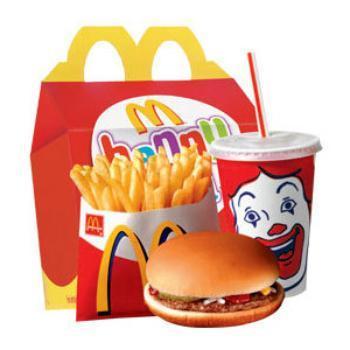New healthy-food ad campaign promises to be interesting 09/27/2013 | ConsumerAffairs
 Pre-emptive disclaimer: It's very very important to eat a healthy, balanced diet containing all necessary vitamins, minerals, simple and complex proteins, sufficient levels of dietary fiber, and other nutritional stuff. Our own personal kitchen is chock-full of healthy ingredients used to cook healthy meals eaten in accordance with a healthy lifestyle. There's also a big bag of jellybeans, and we're eating some even as we type this.
Pre-emptive disclaimer: It's very very important to eat a healthy, balanced diet containing all necessary vitamins, minerals, simple and complex proteins, sufficient levels of dietary fiber, and other nutritional stuff. Our own personal kitchen is chock-full of healthy ingredients used to cook healthy meals eaten in accordance with a healthy lifestyle. There's also a big bag of jellybeans, and we're eating some even as we type this.
Flavored sugar is all they are, with nary a vitamin or mineral to be found in them, and if we tried subsisting on an all-jellybean diet we'd surely develop horrible health problems before too long. But we're not going to do that; we eat a generally healthy diet, and know that "eating healthy" doesn't mean "everything you eat has to be Healthy with a capital H." So in general, we eat balanced, nutritious meals consisting of capital-H Healthy stuff — and sometimes we indulge on jellybeans, ice cream or greasy, salty fast food.
Meanwhile, McDonald's is trying to add more capital-H foods to its menu while reducing the number of indulgence products it offers. That's why it publicly announced its new intention to stop listing soda as a beverage offering on its Happy Meal menu.
Instead, store menus will offer water, milk and juice, and Happy Meals and other foods will feature "packaging innovations and designs to generate excitement for fruit, vegetable, low/reduced-fat dairy, or water options for kids."
Humans in general — and children in particular — evolved to crave fat and sugar when we were still hunter-gatherers roaming the prehistoric African savannas. Fatty, sugary foods are extremely rare in the wild, and craving these rare, high-energy, high-calorie foodstuffs (along with our ability to turn excess calories into body fat), helped our ancient ancestors survive the epochs when food shortages were a constant threat.
Blame industrial farming Early take-out food
Early take-out food Only in the modern era of industrial-scale farming and food production has the average person needed to worry that their diet might contain too much fat or sugar, or too many calories; for most of our time on Earth, humanity's main dietary problem was getting too littleof these things.
So, anyway, if McDonald's thinks a marketing campaign can undo five billion years of evolutionary development and make kids crave water and vegetables in lieu of fatty, sugary yum-yums when they're in the mood for a treat, we wish McDonald's the very best of luck.
When AdAge wrote about the new McDonald's soda-downplaying initiative, it quoted a spokeswoman from the Center for Science in the Public Interest who said "Getting soda out of Happy Meals is historic progress that should immediately be adopted by Burger King, Wendy's, and other chains. Soda and other sugar drinks are leading promoters of obesity and diabetes and one day it will seem crazy that restaurants ever made this junk the default beverage for kids."
Perhaps. Or perhaps one day it will seem crazy that a grown adult makes no distinction between "drinking soda" and "drinking nothing but soda." It's just like jellybeans: neither is a capital-H Healthy food, but both can certainly exist in a healthy diet.
Of course, the CSPI has been opposed to McDonald's and other fast-food outlets for a long time. In 2010, it tried (unsuccessfully) to sue the company and force it to stop handing out toys along with its Happy Meals. CSPI spokesman Michael Berman insisted that putting toys in a Happy Meal (or doing anything else which might convince a child to eat something that isn't Healthy with a capital H), is "as inappropriate and anachronistic as lead paint, child labor and asbestos."
See? If it's not Healthy with a capital H, it may as well be outright poison, and thus according to the CSPI, the next time your kid asks you for a Happy Meal so she can have the cool toy inside, it is not inappropriate to feed her lead paint instead. They're practically the same thing.
No comments:
Post a Comment